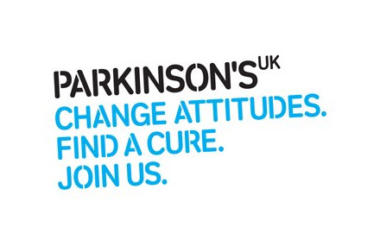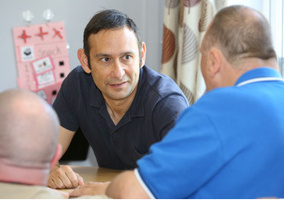Parkinson’s UK has pledged to more than double the representation of people living with disabilities who work at the charity to 20% over the next three years.
As part of its first equality, diversity and inclusion (EDI) strategy, the charity aims to reflect the demographics of the UK population in its staff and volunteers and employ at least 14% of its workforce from a minority ethnic background.
The strategy, published today, sets out three priorities around the charity’s beneficiaries, staff and people living with the condition.
It aims to ensure people from all socioeconomic and ethnic backgrounds can access its services.
And it has opened a “race equality in research” project to “amplify the voices of people underrepresented in research”.
The charity said having a diverse network of people involved in research, as well as a diverse and inclusive workforce that reflects the community it serves, is key to make “breakthroughs that change the lives of people with Parkinson’s”.
“While we’ve made significant steps towards creating a more diverse culture at the organisation, we recognise there’s still a lot of work for us to do,” it wrote in the strategy.
“We know we haven’t consistently led an approach to equality, particularly with our volunteer and wider community, before now. This has made it difficult to hold ourselves accountable or measure progress.”
A more diverse workforce
According to the Charity Commission website, Parkinson’s UK has more than 400 employees and over 3,000 volunteers.
In its strategy, the charity committed to having at least 14% of its staff from a minority ethnic background by 2026, up from 11% currently. Meanwhile, around 91% of its volunteers currently identify as white.
The charity has also pledged to employ more employees living with Parkinson’s and other disabilities, to reflect the working age population.
Currently, 9% of its workforce have a declared disability compared to 20% of the working UK population.
It will invest in recruitment resources, campaigns, processes and learning programmes to reach more diverse volunteers and staff.
“We know that to be there for everyone living with Parkinson’s, and those who love and care for them, we need a diverse workforce (staff and volunteers), that represents people from all protected characteristics,” the charity said.
“We’ve started to make good progress on this. In the last year (2021), 20% of job appointments have been made to people from ethnic minority backgrounds. And people from minority ethnic backgrounds make up 8% of our leadership roles.
“However, there’s still work to do. We’re lacking in data and insight for our volunteer base. We have data on around 25% of our volunteers. Of those that we have data for, 91% identify as white. Our volunteer base is also predominantly over 65 years old and female.”
Socioeconomic status and race equality
Another priority is engaging communities and people from all socioeconomic backgrounds.
The charity said it currently lacks data on the socioeconomic status of its beneficiaries and might not reach everyone who needs support.
Over the next few years, it will work to “gather more insights into socioeconomic status and Parkinson’s” to ensure it can provide tailored support to people and tackle barriers to accessing services and support.
The charity will also ensure “race equality in the research and support” it offers to the Parkinson’s community.
This will be achieved by monitoring the level of engagement with minority ethnic groups in research and establishing “a nationwide approach to locally engaging minority ethnic community”.
Parkinson’s UK: ‘We don’t discriminate’
Caroline Rassell, chief executive of Parkinson’s UK, said: “Parkinson’s doesn’t discriminate, but someone’s experience with the condition is often affected by factors outside of their control. Where they live, their income, race, ethnicity and gender all affect the support and services they can access. That shouldn’t be the case. That’s why we’ve created our first EDI strategy to prioritise and meet the needs of the whole Parkinson’s community.
“Although we recognise there are many ways our community faces inequality and exclusion, these three ambitions are a solid foundation to build on and where we can make a lasting impact. We’re determined to reach more people with Parkinson’s and continue our mission to find better treatments for everyone.”
She added: “We’ve still got a lot of work to do, but this strategy is our commitment to helping everyone affected by Parkinson’s get equal access to the opportunities and support they need. Within the strategy are clear aims and timelines so that, as a charity, we can be held accountable by our colleagues, peers and community. All of us have a role to play in this vital work.”
Related articles











